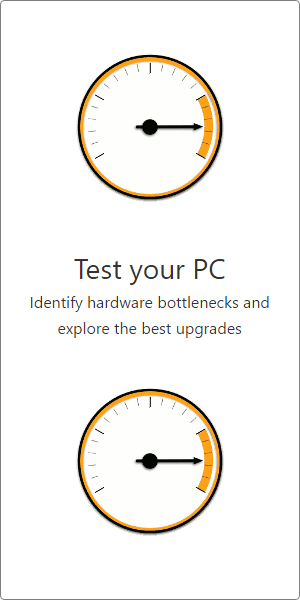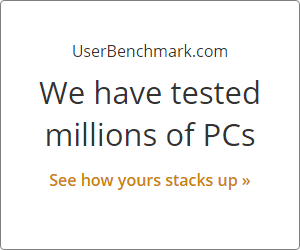Effective Speed
+54%
Poor: 128%
Great: 174%
SPEED RANK: 27th / 713
Poor: 91%
Great: 106%
SPEED RANK: 62nd / 713
| Effective 3D Speed
Effective 3D Gaming GPU Speed |
156 % | Much faster effective speed. |
101 % |
Average Score
+83%
Overclocked Score
+109%
Value & Sentiment
+∞%
Nice To Haves
+46%
Conclusion
Average Bench 156%
Average Bench 101%
User Builds
357,946
13,762
Systems with these GPUs
Top Builds that include these GPUs

 GPU
GPU
